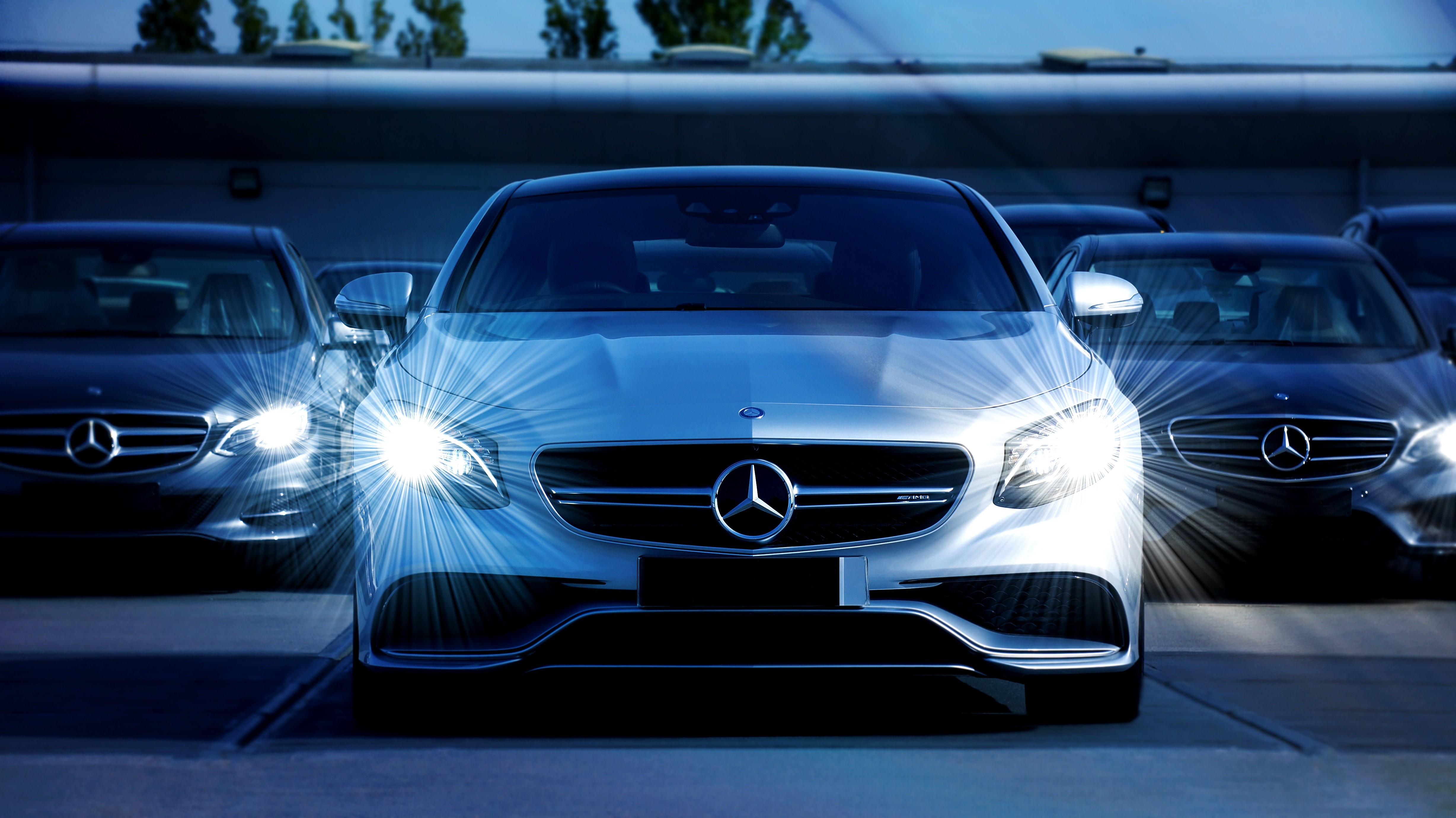Germany stands as a powerhouse in the automotive world, renowned for producing some of the most respected, innovative, and sought-after vehicles globally. When people ask, “What Are German Cars?”, they’re often thinking of a blend of luxury, performance, and engineering excellence. This article dives into the heart of German automotive prowess, spotlighting the major players that have cemented Germany’s reputation on four wheels. We’ll explore the iconic brands that not only define “German cars” but also shape the very landscape of the automobile industry.
 Group of Mercedes
Group of Mercedes
The Big Five: Cornerstones of German Automotive Excellence
While numerous manufacturers contribute to Germany’s rich automotive heritage, five brands stand out as the giants, often referred to as “the Big Five.” These are Audi, BMW, Mercedes-Benz, Porsche, and Volkswagen. Each brings a unique flavor to the German car identity, yet they all share a commitment to quality, innovation, and driving pleasure. Let’s delve into what makes each of these brands distinctly German and globally influential.
Audi: Vorsprung Durch Technik – Progress Through Technology
Originating in 1909 from the vision of August Horch, Audi, headquartered in Ingolstadt, carries a name derived from the Latin translation of Horch’s German surname, meaning “listen.” Audi has become synonymous with sophisticated design and technological advancement. Their brand slogan, “Vorsprung durch Technik,” translating to “Progress through Technology,” perfectly encapsulates their ethos.
Audi’s vehicle lineup is extensive, encompassing everything from compact hatchbacks to large SUVs. They are particularly celebrated for their premium sedans and wagons, which offer a blend of luxury and practicality. Staying ahead of the curve, Audi has aggressively moved into the electric vehicle market with their e-tron series, showcasing their commitment to future mobility. Furthermore, the Audi R8 supercar exemplifies their ability to produce high-performance vehicles that thrill and innovate.
BMW: The Ultimate Driving Machine
Founded in 1916 as Bayerische Motoren Werke by Franz Josef Poppe, BMW initially focused on aircraft engines before transitioning to automobiles in 1929. Based in Munich, in a distinctive headquarters resembling an engine’s four cylinders, BMW has carved a niche as a luxury manufacturer specializing in sports cars and sedans. Their range has broadened to include hatchbacks, SUVs, and a growing portfolio of electric and hybrid vehicles like the pioneering i3 and i8 models.
BMW’s brand is deeply rooted in performance and driving dynamics, a legacy prominently displayed in their success in touring car racing and Formula 1. The phrase “The Ultimate Driving Machine,” though not their official slogan anymore, still resonates deeply with enthusiasts and accurately reflects BMW’s focus on delivering a superior driving experience.
Mercedes-Benz: The Epitome of Automotive Luxury
Mercedes-Benz emerged in 1926 from the merger of Karl Benz’s and Gottlieb Daimler’s companies, two pioneers of the automobile. Headquartered in Stuttgart, Mercedes-Benz, originally Daimler-Benz, carries the legacy of Karl Benz, who is credited with creating the first practical automobile, the Benz Patent Motorcar in 1885.
Mercedes-Benz is globally recognized as the leading premium automotive brand. In 2018, they were acknowledged as the largest premium car seller worldwide, with 2.31 million vehicles sold. Their product range is incredibly diverse, from commercial vehicles like trucks and vans to luxury sedans, sporty coupes, and ultra-luxurious models under the Maybach sub-brand. Always innovating, Mercedes-Benz is expanding its electric offerings, including all-electric SUVs, to meet the demands of a changing automotive landscape.
Volkswagen: The People’s Car, Globally Embraced
Volkswagen, meaning “people’s car” in German, was founded in 1937 by Ferdinand Porsche with the mission to produce affordable and reliable cars for the masses. Today, Volkswagen uses its name as a global advertising campaign, emphasizing its broad appeal.
The Volkswagen Group has grown into an automotive empire, encompassing not only the Volkswagen brand but also prestigious marques like Bentley, Lamborghini, Porsche, and Audi, among others. In 2016 and 2017, the Volkswagen Group was the world’s largest automaker by sales volume. While not always positioned as a luxury brand like some of its German counterparts, Volkswagen offers a comprehensive portfolio of vehicles, including hatchbacks, sedans, SUVs, and is actively developing its ID series of electric vehicles, showing its commitment to sustainable mobility for everyone.
Porsche: Racing Heritage and High-Performance DNA
Porsche, also founded by Ferdinand Porsche in 1931 and based in Stuttgart, is synonymous with high-performance sports cars and a rich racing pedigree. Arguably possessing the strongest racing heritage among German automakers, Porsche’s identity is deeply intertwined with motorsport.
From iconic sports cars like the 911 to high-performance SUVs and sedans, Porsche vehicles are engineered for driving enthusiasts. Their focus on sports car development and racing technology permeates their entire lineup. True to the evolving automotive trends, Porsche is also venturing into the electric vehicle sector, with significant announcements expected, further blending their performance DNA with future-forward technology.
Beyond the Big Five: A Rich Tapestry of German Automakers
The “Big Five” are just the most prominent figures in a much broader and historically rich German automotive industry. Brands like Opel and Alpina, while perhaps not as globally dominant, have made significant contributions to automotive innovation and motorsport. Even niche manufacturers like Gumpert have pushed boundaries with high-performance vehicles. The diversity and depth of German automotive manufacturing extend well beyond these major players, contributing to a vibrant and innovative ecosystem.
German Automotive Excellence: A Lasting Legacy
German cars are more than just modes of transportation; they represent a legacy of engineering excellence, innovation, and a commitment to driving pleasure. From luxury sedans to high-performance sports cars and increasingly, electric vehicles, German automakers continue to lead the industry. When considering “what are German cars,” it’s clear they are a benchmark of quality and aspiration for drivers worldwide.
If you own a German car and require expert care, including MOT testing, ECU mapping, servicing, or repairs, consider contacting specialists who understand the intricacies of these exceptional vehicles.
German Specialists Ltd are experts in maintaining and enhancing German vehicles. Contact us today at 0161 476 4422 or through our contact form for all your German car needs.
[
